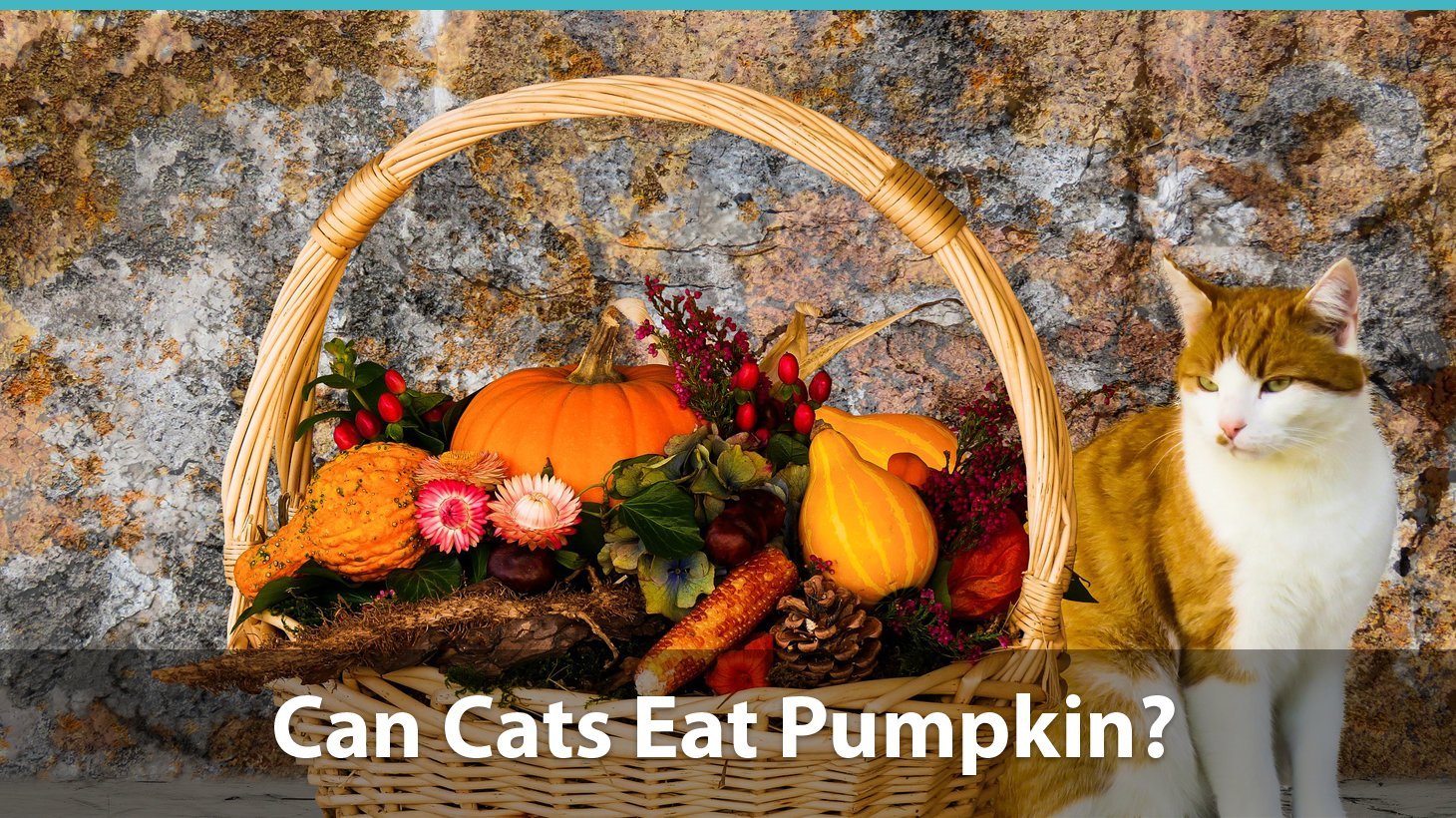Many pet parents say that cats shouldn’t be fed with anything but cat food. However, if you take a closer look at the labels of some high-quality foods, you’ll see that along with meat they also contain herbivorous foods.
One such food is pumpkin. It’s an ingredient in a plethora of cat food recipes, especially the gastro and holistic ones modified for furballs with sensitive stomachs.
So that means pumpkin is safe for cats, right? It actually depends on the type of pumpkin, the way it’s served and seasoned, as well as on the dose and frequency of feeding. I’ll explain some of the pros and cons of giving pumpkin to cats below.
Benefits of feeding pumpkin to your cat
We, human beings, don’t consider pumpkin in any of its forms as a superfood. However, it is a superfood for cats of all breeds, ages, and genders when it’s given to them in moderation and only when necessary.
Here are the key nutrients and advantages your kitty receives when she eats pumpkin:
- Essential fiber
- Vitamins A, C, and B6
- Riboflavin and thiamine
- Potassium
- Antioxidants
- Moisture
So, what are the benefits of giving pumpkin to your fluffy friend?
- Boosts the immune system
- Gets rid of constipation caused by lack of fiber
- Relieves diarrhea by absorbing the excessive water in your cat’s digestive tract
- Helps control weight and even aids in weight loss by limiting the carb intake
- Supports urinary health with its fatty acids and antioxidants
As you can see, there are quite a few advantageous aspects of feeding pumpkin to your cat.
Can you feed your cat raw pumpkin?
Never feed raw pumpkin to your cat. Always cook the pumpkin flesh before serving it to your furball. And make sure it is fresh pumpkin.
Alternatively, you can use canned/ pre-cooked pumpkin as an alternative.
What types of pumpkin can cats eat?
Here’s a quick guide on the types of pumpkin, which are safe for cats and kittens, as well as for other animals, such as dogs.
Mashed/ pureed pumpkin
The easiest way to feed pumpkin to your cat is to use mashed or pureed pumpkin. Mix it in some of the kitty’s favorite cat food or serve it as a treat.
Either way, the veggie will do its magic. Just make sure the pumpkin is unseasoned! Any sweeteners or salty/ spicy seasonings can be toxic for your beloved furball.
Moreover, don’t ever use milk to make the consistency smoother. Many kitties are lactose intolerant and the milk can upset their tummies.
Canned pumpkin
Yes, you can give canned pumpkin to your cat. If it’s unseasoned and low in sugar/ sodium (even “plain” canned pumpkin has some sugar and salt), it will be safe for your kitty.
Stay away from your store’s pumpkin pie filling! These things usually include additives like cinnamon, sugar, ginger and other ingredients, which are harmful to animals.
What’s more, they also contain lots of sugar and various preservatives. Opt for that plain canned pumpkin – it’s your safest bet when it comes to cats and dogs alike.
Pumpkin juice
All-natural pumpkin juice is safe for cats. You can use the liquids from plain canned pumpkin or you can strain homemade pumpkin juice for your kitty.
Mix tiny amounts of the juice in the cat’s food.
Why tiny amounts? The juice won’t be sufficient enough to replace the feline’s daily water intake requirement. Plus, too much juice can cause indigestion, vomiting, and diarrhea.
Seeds
Pumpkin seeds are perfectly safe for cats to eat. What’s more, they’re really good for them. Pumpkin seeds are extremely rich in potassium, magnesium, dietary fiber, protein, and healthy fatty acids.
Roast them, crush them and mix them with your kitty’s food without adding any topping or spices.
What parts of a pumpkin are not safe for cats?
Don’t give your cat pumpkin skin, pumpkin pulp, raw pumpkin or leftovers from a Jack-O-Lantern pumpkin that has already been cut out and left inside/ outside even if it hasn’t started going bad just yet.
Cats don’t digest pumpkin skin and pulp well. The same goes for raw pumpkin.
As for the Jack-O-Lanterns… Even if the pumpkin doesn’t have any visible signs of rotting yet, it does have a bunch of bacteria, which could pose a health risk to cats (and to humans, dogs, and other creatures).
Conclusion
If your pet is having problems with constipation, diarrhea, tummy aches or weight gain, opt for adding some pumpkin to its meals.
Don’t overdo it though! Cats are and will always be carnivores. You can’t and shouldn’t treat pumpkin as a main ingredient in your cat’s diet and it should never be used as a substitute for meat.
If you desire to add pumpkin to your kitty’s everyday diet, consult your veterinarian on the safe amounts and frequency of feeding.

